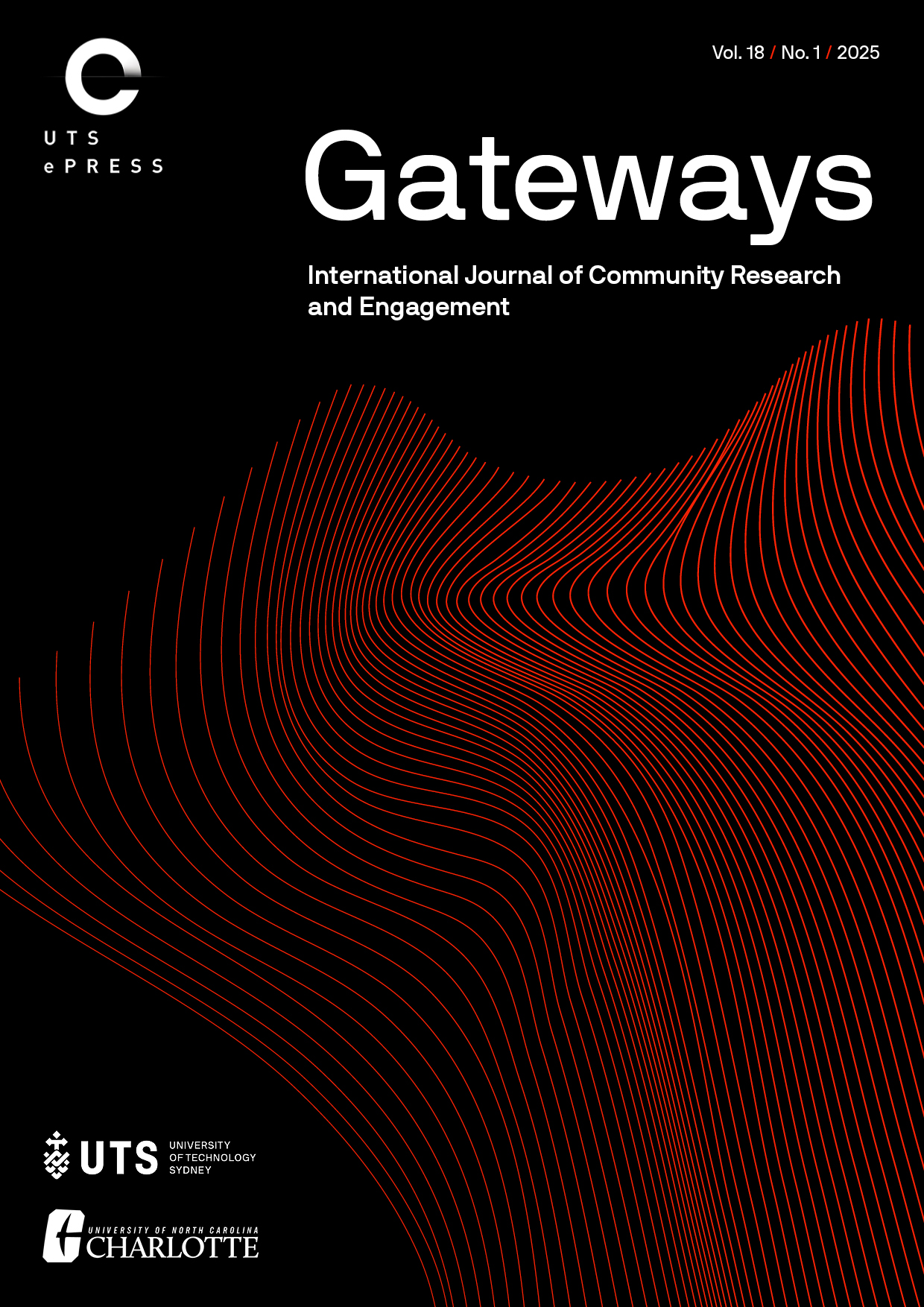Participatory ESOL as process and product: Community-based participatory research with refugee English learners
Main Article Content
Abstract
Adult English for Speakers of other Languages (ESOL) courses are crucial for the social and economic integration of immigrant and refugee families. These programs need to be customised to learners’ diverse educational backgrounds, needs and objectives. However, adult ESOL programs consistently face demand that surpasses capacity, and neoliberal funding requirements prioritise workforce integration. This article results from a community-based participatory research (CBPR) partnership established to address these intersecting challenges through ESOL instruction shaped by the needs and priorities of refugee adults. Participatory approaches have been used widely to engage adult learners in research, from needs analysis to curriculum development and program evaluation. However, in this article we argue that CBPR is both process and product, an effective method for facilitating learning and knowledge production. Through vignettes recreated from field notes, a learner-authored story and a participatory evaluation of the course, we examine the process we have undergone simultaneously as adult education and research about adult education. By examining the data for instances of vivencia, praxis, and conscientisation, we confirmed that critical adult education is participatory research. Community concerns sparked the project, and the expertise of those closest to the issue informed the solution, resulting in individual conscientisation and action toward broader social change. By centring learners’ own words in the article, we aim to trouble the presumed divisions between community and university, researcher and participant, and education and research. We encourage fellow community-engaged scholars to reconnect with the roots of this powerful approach and recognise the importance of living out their onto-epistemological commitments in both the process and the product of participatory inquiry.
Article Details
Issue
Section
Authors who submit articles to this journal from 31st March 2014 for publication, agree to the following terms:
a) Authors retain copyright and grant the journal right of first publication with the work simultaneously licensed under a Creative Commons Attribution License that allows others to share and adapt the work with an acknowledgement of the work's authorship and initial publication in this journal.
b) Authors are able to enter into separate, additional contractual arrangements for the non-exclusive distribution of the journal's published version of the work (e.g., post it to an institutional repository or publish it in a book), with an acknowledgement of its initial publication in this journal.
c) Authors are permitted and encouraged to post their work online (e.g., in institutional repositories or on their website) prior to and during the submission process, as it can lead to productive exchanges, as well as earlier and greater citation of published work (See The Open Access Citation Advantage Service). Where authors include such a work in an institutional repository or on their website (ie. a copy of a work which has been published in a UTS ePRESS journal, or a pre-print or post-print version of that work), we request that they include a statement that acknowledges the UTS ePRESS publication including the name of the journal, the volume number and a web-link to the journal item.
d) Authors should be aware that the Creative Commons Attribution (CC-BY) License permits readers to share (copy and redistribute the work in any medium or format) and adapt (remix, transform, and build upon the work) for any purpose, even commercially, provided they also give appropriate credit to the work, provide a link to the license, and indicate if changes were made. They may do these things in any reasonable manner, but not in any way that suggests you or your publisher endorses their use.
For Volume 6 (2013) and before, the following copyright applied:
Articles published by UTSePress are protected by copyright which is retained by the authors who assert their moral rights. Authors control translation and reproduction rights to their works published by UTSePress. UTSePress publications are copyright and all rights are reserved worldwide. Downloads of specific portions of them are permitted for personal use only, not for commercial use or resale. Permissions to reprint or use any materials should be directed to UTSePress.
